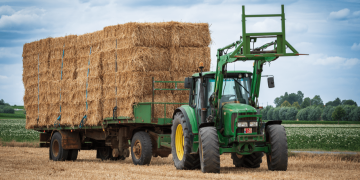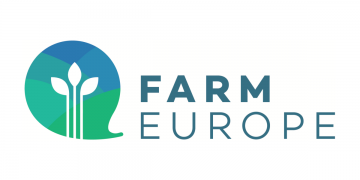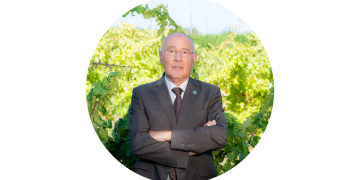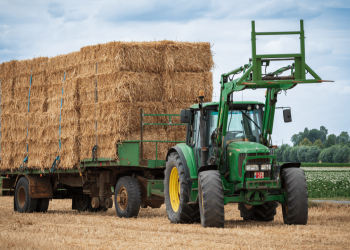Synthetic biology can solve some of Africa’s pressing challenges related to poverty, food insecurity and climate change, scientists say, but its adoption faces hurdles.
“Synthetic biology presents a golden opportunity for improving livelihoods in Africa, but its success can only be realized if the policy and legislative environment is conducive,” said Benson Kinyagia, principal scientist at the national commission for science, technology and innovation in Kenya.
“Many African countries don’t have policies and other laws that can facilitate development of synthetic biology and govern usage of its applications or products,” added Robert Kibuuka, principal science officer in charge of biosafety and biosecurity at the ministry of science, technology and innovation in Uganda.
Apart from food security, synthetic biology can improve energy security, boost industrial growth, reduce greenhouse gases and promote environmental protection.
The technology can develop rapid, low-cost diagnostic tools that can help in disease prevention and treatment. It can also use bacteria to build agricultural applications and other sensors for monitoring land and water pollutants.
Compared to genetic engineering, which usually involves manipulating one or more genes within an organism to achieve desired traits such as drought-tolerance in plants, synthetic biology is broader and multidisciplinary.
But even countries like Sudan, Nigeria and Kenya, which have enabling legal frameworks for regulating related technologies such as genetic engineering, have yet to enact rules that are specifically meant for synthetic biology.
And yet, nothing can really progress without enabling policies that can govern the development and use of the technology.
“The lack of enabling legal frameworks delays everything from appreciation of synthetic biology and what it can do to improve livelihoods in Africa to funding and actual adoption of the technology and usage of its products,” Kibuuka said.
UNESCO’s latest science report, The Race Against Time for Smarter Development, indicates African countries spend less than 1 percent of their gross domestic product (GDP) on research and development.
This is a very minimal amount. The report encouraged African countries to improve their investment in science, research and development to make tangible progress in the sector.
“Countries that are leading in synthetic biology research and other new technologies, such as the United States and United Kingdom, make significant investments in these technologies,” said Dr. Stephen Opiyo, research scientist at Ohio State University in the United States.
But Kinyagia said that above everything else, Africa must develop policies and other laws that can facilitate development and usage of synthetic biology and its products.
“This should be the first hurdle we have to skip: creation of enabling legal frameworks that can facilitate development and usage of these technologies,” he said. “Once we have enabling policies, other priorities like funding, research and development could follow.”
South Africa leads the continent
While the technology has huge potential to greatly improve livelihoods in Africa, its adoption on the continent is very limited.
Only South Africa has a sizable synthetic biology presence, with Stellenbosch Biomass Technologies and Inqaba Biotech involved in biofuel production and gene sequencing services, respectively.
But scientists are hopeful the technology could actually thrive on the African continent — although more hurdles have to be jumped.
“Africa just needs the right mindset,” Opiyo said. “The onus is on us scientists to show our leaders what these newer technologies can actually offer.
“We need to improve people’s awareness and perception of these technologies,” Opiyo continued. “When most of the public and our leaders understand what these technologies can offer, once we have the political will, everything else will start to fall in place.”
Opiyo noted that “Africa already has capable scientists. It only needs its leadership to appreciate these newer technologies and actually fund their development.”
Several researchers have started collaborations and other partnerships that can create awareness and induce growth of synthetic biology here.
For instance, a team of synthetic biology experts from Imperial College London have partnered with researchers in East Africa to identify areas where emerging technologies could have life-changing impact in such as food security, industry, health and the environment.
The scientists have helped to forge new working relationships, and developed training and collaborative partnerships.
“East Africa has an opportunity to move towards a far bigger bioeconomy, where it can put in place processes such as industrial biotechnology and not just focus on agriculture,” said Professor Paul Freemont, team leader and co-founder and co-director of the Centre for Synthetic Biology and Innovation at Imperial College London.
“I think this workshop has allowed them to identify and audit their current capabilities in the region. They can use this meeting to identify gaps and then try and develop the technologies, training and infrastructure,” Freemont said.
And, last month, SynBio Africa — which is advocating for development of these newer technologies on the continent — organized a conference to discuss the state of synthetic biology and biosecurity on the continent.
The conference discussed topics related to agricultural innovations, artificial intelligence, bioinformatics and policy issues surrounding biosecurity and biosafety and renewable energy in Africa.
“The conference was a starting point,” was Geoffrey Otim, molecular biologist and founder of SynBio Africa. “We have also inducted 16 fellows from across the continent to learn more about synthetic biology and be ambassadors of the technology and its importance.”
Otim said SynBio Africa plans to establish a center of excellence in synthetic biology research in Africa and is midway through writing the proposals. The center would be headquartered in Uganda and have ambassadors in Ethiopia, Ghana, Zimbabwe and Kenya.
When completed, the center would link researchers, policy makers and industry to develop successful pathways for the propagation of synthetic biology technologies, products and services through Africa and the world.
“We are giving ourselves three years,” Otim said. “After that, the center should be running. “Our focus will be on research and capacity development in synthetic biology and what it can do in bioinformatics and data science, and climate change and agricultural innovation.”
Such discussions will spike the public’s awareness and perception of the technology, Otim said. The trainings can also facilitate the continent’s capacity in synthetic biology development.
Way forward
But a report by Reagan Mudziwapasi and others said Africa needs a harmonized position on the regulation and governance of synthetic biology — addressing whether it should be case-specific, process-based or product-based — to really move forward.
The gaps in the regulatory frameworks need to be addressed if Africa is to derive maximum benefit from synbio while minimizing risks associated with the technology, the researchers said.
“Taking cognizance of both benefits and risks of the technology, African countries need to come up with all-encompassing regulatory frameworks which will not stifle development at the same time making sure that adequate biosafety and biosecurity measures are put in place to prevent misuse of the technologies,” the researchers said.
“Scientists, governments, industry and academia can work together to improve knowledge, adoption and safety of synbio and other technologies. Industry will only fund research where it is guaranteed return on investment.”
The researchers said adoption of synthetic biology in Africa might seem arduous considering that most African countries have yet to accept GMOs and other newer technologies.
However, the trainings in East Africa and the innovative companies in South Africa hold out hope that synthetic biology will progress on the rest of the continent.
























































Discussão sobre este post